
Changing careers when you’re young can be scary. But changing careers late in life? Well, that can be downright terrifying!
I should know, I’ve done both!
First, I abandoned the world of engineering (and all it’s stability and security) for the world of international development.
Then, again more recently (and a lot older), I’ve jumped ship to pursue writing through blogging and writing fiction.
So, I’m a seasoned veteran of the paralysing doubts.
The: “What will people think?”
And “Can I really afford this?”
Let’s be honest, the whole idea of starting over, climbing a new ladder after diligently scaling the first one, can be enough to make anyone break into a cold sweat.
But here’s the thing: I did it, many famous people did it, so you can too!
In this blog post, you’ll hear about why you’re not too old to change careers and how to do it thoughtfully.
I’ll also share not just my story, but also the stories of inspiring individuals who made major career moves later in life, proving that chasing your dreams is possible at any stage of the game
Table of Contents
ToggleWhy Changing Careers Late in Life Makes Sense
Have you ever stopped to think about how young we are when expected to pick a career path?
At 17 or 18, with limited life experience, how much can we truly know about ourselves and what makes us tick?
Back then, our career choices might have been influenced by external factors like parental pressure, societal expectations, or simply a limited understanding of the working world. (All of the above for me).
Fast forward a decade or two, and you’re a completely different person!
You’ve gained valuable life experiences, discovered new passions, and maybe even started a family.
Priorities shift.
Maybe money wasn’t a huge motivator back then, but now it’s a top concern.
Perhaps the work-life balance you once craved isn’t as important as the chance to make a real impact.
The point is, our needs and desires evolve, and our careers should too.
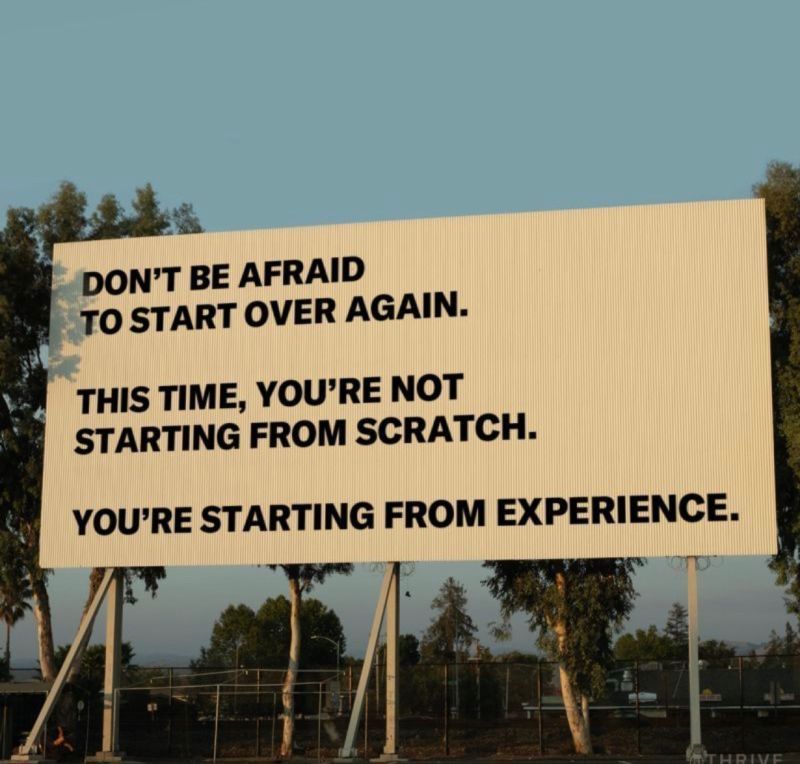
Bottom line:
A late-career change isn’t a sign of failure, it’s a sign of growth and self-awareness.
It means you’re not afraid to adjust your sails and chart a new course towards a more fulfilling future.
Besides, with lifespans increasing, we have the exciting opportunity to explore different career adventures.
Plus, with more years of experience and potentially better health, making a switch can feel less scary and more empowering.
We only have one life to live, so why not chase the work that sparks joy and ignites your passion?
How to Do a Late-Stage Career Change (Properly)
Here are five key steps to guide you through a smooth transition:
1. Know Yourself: Define Your Priorities
Before diving into a new field, figure out what it is you really want.
And I’m not only talking about “your passion” if you even know what that is.
I’m talking about your ideal working hours and holidays. The flexibility. The pay. The kind of work environment you thrive in (nah-uh to fluorescent lighting!).
I’m talking about how you like to work, what management style (if any) agrees with you, and the amount of socialising you can handle (to client-face or not?).
Is it the impact you create, the work-life balance, or the intellectual challenge that drives you?
Identify what truly matters to you.
There are no wrong answers.
So, don’t try to be politically correct.
Here’s a good book to help you out: What Colour is Your Parachute? A Guide to a Lifetime of Meaningful Work and Career Success by Richard Bolles
2. Research & Network: Insider Information is Key
Don’t rely solely on online descriptions or what you see in the movies!
Research your desired field thoroughly.
Network with professionals in your target industry. (Buy them a coffee and let them rant honestly about their work).
Or conduct more formal informational interviews to get a realistic picture of the day-to-day work and the people you’d be working with.
Watch or read up on “a day in the life of…” content from whatever you want to do.
This research step, unfortunately, was one I missed when I went into international development.
I thought I knew what I was signing up for, but the reality was completely different.
It goes to show the importance of talking to real people in the field. (And more than one!)
Ask yourself:
- Are these the kind of colleagues I see myself connecting with?
- Are their tasks the kinds of tasks I see myself doing?
- Are their work problems the kind I’m willing to have?
Your heart will tell you the truth when you talk to people doing what you think you’d like to do. And your experience will guide you.
3. Leverage LinkedIn & Build Your Skills
“LinkedIn? LinkedIn??” I hear you shout at me in disbelief.
Yes, LinkedIn!
LinkedIn is actually one of my favourite social media tools because its gotten me my last 2 jobs (without trying).
It’s also full of lively discussion on interesting topics like workplace behaviour or whatever has been in the news that week.
It is also a powerful tool for networking and establishing yourself as a thought leader. (If you use it right!)
Actively participate in industry groups, share valuable content by posting regularly, and connect with professionals in your desired field.
Use this platform to also research necessary qualifications, certifications, or specific skill sets needed to make a successful transition.
By looking at the job descriptions for the positions you’re looking into, or following the people who have your dream job, you’ll know what it takes to transition into your ideal career.
4. Chart Your Course: Be Strategic
Carefully consider your current financial situation and any dependents you may have.
Discuss your plans openly with those you rely on and those who rely on you.
Based on these factors, chart a deliberate path.
This may involve going back to school for specific skills, starting at an entry-level position, or finding a bridge job that leverages your existing experience while gaining experience in your new field.
For me, I don’t think I would have jumped into blogging if we didn’t have enough savings for me to experiment.
So, take your risk tolerance into account, consult with those who will be affected by your decision, and plan a route that works best for everyone.
5. Embrace the Journey, Prepare for Challenges
A successful career change rarely happens overnight.
Setbacks and unexpected hurdles are a natural part of the process.
The biggest difficulties are likely to be the ones in your mind and in your heart. The voices of doubts that tell you to head back for the safety of the familiar.
Develop coping mechanisms and a support system ahead of time to help you weather the storms.
Have a plan for dealing with financial limitations during the transition period, and most importantly, cultivate a resilient spirit to keep you moving forward.
You can achieve anything at any time, including changing careers late in life. But it takes grit and resilience. And a lot of support.
So, get yourself into the best mental shape possible, and conquer!
When Changing Careers Late in Life is a Bad Idea
While a career change can be incredibly empowering, it’s important to ensure your motivations are well-founded.
Avoid chasing trends, money alone, or escaping a bad work situation without a clear plan.
Don’t let societal pressure or the fear of “missing out” dictate your path.
Also, try not to completely give in to fear (like doomsday prepping, etc.)
These superficial reasons can lead to disappointment and a repeat of the career dissatisfaction you’re aiming to escape.
Focus on the intrinsic factors – a genuine interest in the new field, the desire to use your skills differently, or a yearning for a more fulfilling work-life balance.
By aligning your career change with your deeper values and aspirations, you’ll set yourself up for long-term success and satisfaction.
7 Famous Examples of People Changing Careers Late in Life
Whether you’re in your 20s or in your 70s, these 7 inspiring individuals prove that it’s never too late to chase your career dreams:
1. Rowan Atkinson (Mr. Bean), at 24
Electrical Engineer -> Acting

Mr. Bean was enrolled in a PhD in Electrical Engineering when he chose to pursue his acting career (a way to get over his stutter).
The rest, as we say, is history.
2. J.K. Rowling, at 32
Research & Teaching -> Billionaire Author of Harry Potter

J.K. Rowling faced financial struggles before becoming a billionaire with the Harry Potter series. Though she had some writing experience, her major career shift to full-time novelist at 32 became a turning point.
3. Vera Wang, at 40 Fashion Editor -> World Renown Designer
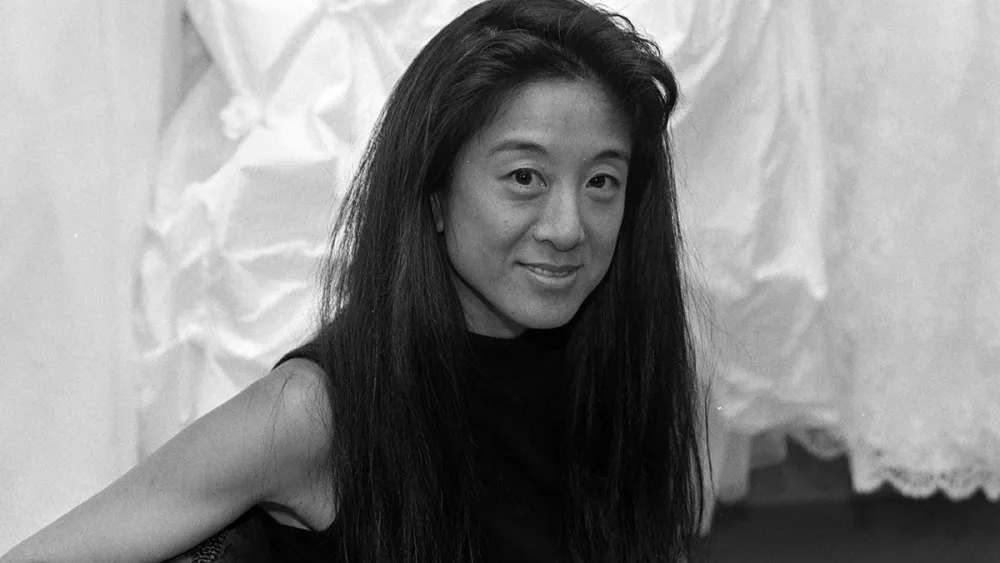
(So, perhaps she wasn’t starting from scratch. But there is a big difference between writing about fashion to creating it, so she definitely deserves to be on here).
Her designs quickly gained recognition for their elegance and innovation, making her a household name in the fashion world.
4. John Grisham, at 46
Lawyer -> NYT Bestselling Novelist

John Grisham was a successful lawyer for over a decade before his legal thriller novel “A Time to Kill” became a publishing sensation at the age of 46. He went on to become one of the best-selling authors of all time.
5. Julia Child, at 50
Government & Advertising -> Famous Cook
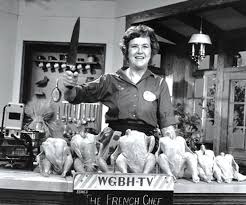
After working in advertising and government, Julia Child found her passion for cooking at the age of 50. She enrolled at Le Cordon Bleu cooking school in Paris and went on to become a beloved television personality and cookbook author, single-handedly changing the way Americans view French cuisine.
6. Colonel Sanders, at 62
Jack of All Trades -> KFC Founder & Businessman
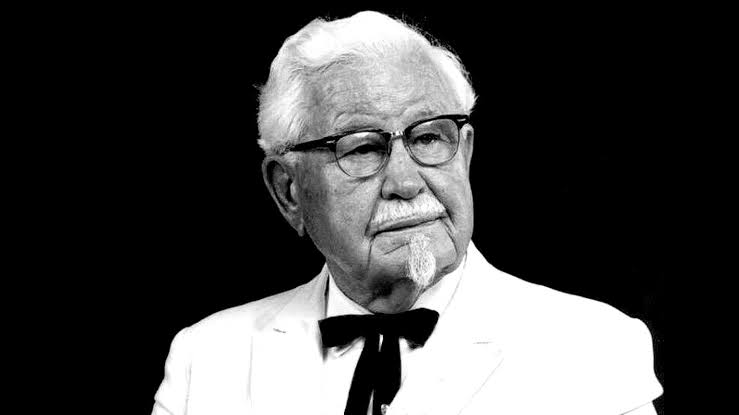
Harland Sanders, better known as Colonel Sanders, was 62 when he franchised Kentucky Fried Chicken in 1952. He sold the company for $2 million 12 years later. Before serving up his renowned original recipe, Sanders held several odd jobs including country lawyer, gas station operator, and railroad worker. Talk about never giving up!
7. Grandma Moses at 78,
Housewife -> Famous Artist
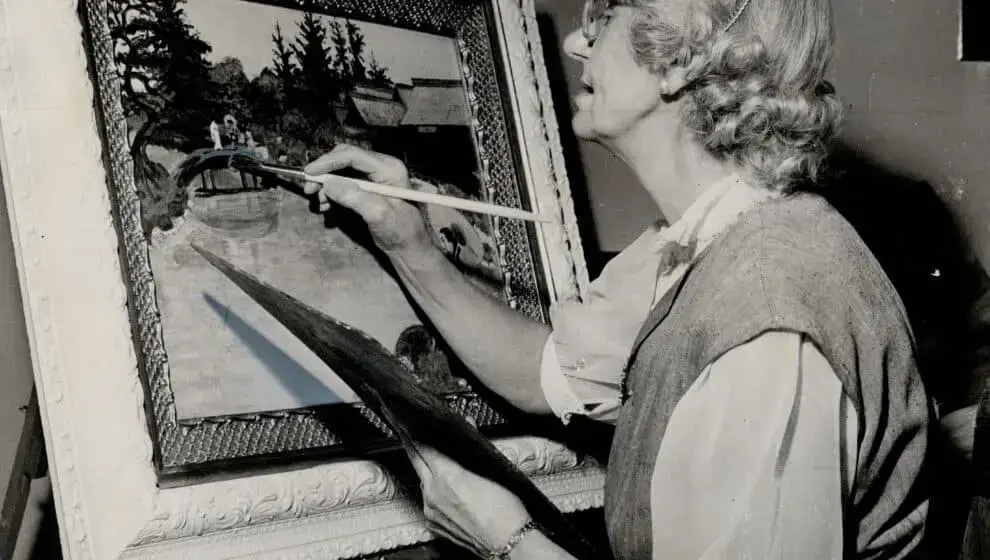
Grandma Moses didn’t start painting until she was 78 years old. While recovering from an arthritis condition, she began creating folk art paintings that captured scenes from her rural life. Her work quickly gained recognition, and she became a celebrated artist (think $millions!) later in life.
Final Thoughts
I cannot stress this enough: the only limitations you face are the ones you create in your mind.
And you can always change this by questioning your thoughts about yourself.
So, don’t let fear or self-doubt hold you back.
Take inspiration from the countless individuals who have successfully navigated career changes later in life.
Because even if you had one day left to live, it wouldn’t be too late to start living this life on your terms!


[…] sure. You can try to fight it, or you can embrace it. Heck, you can even completely change your career. There are great perks to being a tradesperson. No judgement […]
[…] A self-imposed pressure to “succeed” quickly. I constantly worried that I was “falling behind.” […]